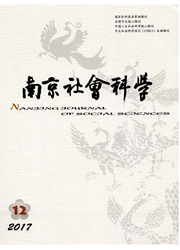

 中文摘要:
中文摘要:
中国各省企业进入和退出数量存在着显著差异,产业层面企业进入和退出的现有研究对此解释不足。现实中企业进入和退出面对融资约束,均需通过当地金融市场来获取足够的外部融资。因此地区金融市场的整体发育直接影响当地企业进入和退出的融资可能性和成本,进而影响中国各省企业进入和退出的数量。本文利用中国工业企业数据库识别出1999-2008年中国31个省的企业进入和退出数量,构建省级面板数据,并分别估计了商业银行市场、证券市场和保险市场三个细分金融市场的发育程度对当地企业进入和退出的影响。结果表明,商业银行市场发育显著促进企业进入和退出;证券市场和保险市场发育对企业进入的作用不明显,且证券市场会阻碍企业退出,保险市场显著促进企业退出。
 英文摘要:
英文摘要:
Chinese provincial entry and exit of firms exhibits significant difference,and the current industrial level research on the firm’s entry and exit does not explain this well. In reality,the firm’s entry and exit faces the financial constraint,and the firm need to get enough outward financing from local financial market. So the whole maturing level of this region affects the financing possibility and cost of entry and exit of local firms by the expansion of size and improvement of efficiency directly,and affects Chinese provincial entry and exit of firms. Sub-financial markets also mature differently,and this gives different effects on the local entry and exit of firms. This paper uses the Chinese manufacturing firm data to identify the entry and exit amounts of firms in 31 provinces from1999- 2008,and constructs the provincial panel data to estimate the effect of maturing of three financial sub-markets,the commercial banks,the stock market and insurance market on the entry and exit of local firms. Results state that the maturing of commercial banks contributes significantly and positively to the entry and exit of firms,and the maturing of stock and insurance market does not contribute to the entry significantly and the stock market impedes the exit of firms,and the insurance market significantly contributes to the exit. The static panel data,the "vacuum effect"and "crowding-out effect"panel data and dynamic panel data model estimation all demonstrate these conclusions are robust,and it depicts the feature of the important and realistic influencing path from the intangible economy to the tangible economy in current China.
 同期刊论文项目
同期刊论文项目
 同项目期刊论文
同项目期刊论文
 期刊信息
期刊信息
